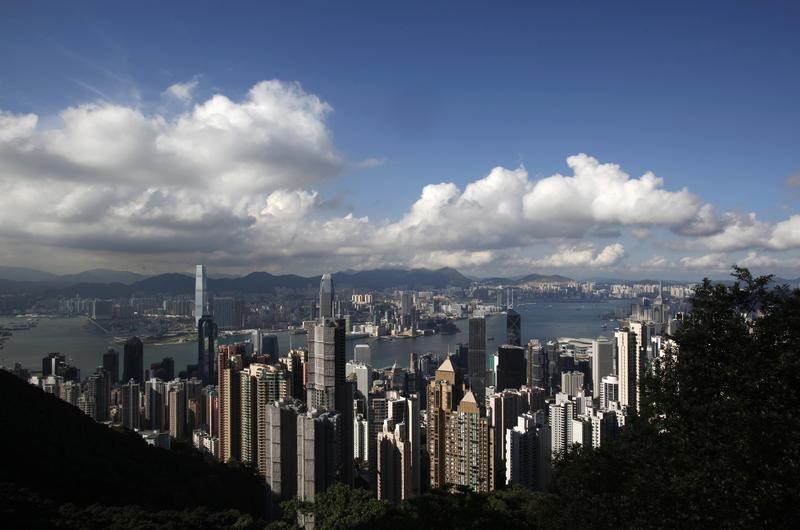By Clare Jim
HONG KONG (Reuters) - New World Development said its land investment in mainland China may exceed that in Hong Kong in the near future, as a new Chinese policy gives it an edge over indebted peers in the hunt for premium land in the "Greater Bay Area".
The new policy, dubbed "the three red lines", aims to tackle unbridled borrowing in China's real estate sector, capping debt-to-cash, debt-to-assets and debt-to-equity ratios, effectively limiting debt-driven growth strategies.
"Some Chinese peers who were competing with us are now being restricted by the three red lines," New World CEO Adrian Cheng, who took over the top job at the HK$95 billion ($12 billion) conglomerate from his father in May, told Reuters.
"We're not restricted, so we are able to get even better land," Cheng said, adding the Hong Kong-based company passed all three red lines because its gearing was only at 40% versus high double digits among mainland Chinese peers.
The bulk of New World's mainland investment will focus on redevelopment projects, which convert old villages into mix-used integrated property complex, involve a long development time but yield attractive margins, the CEO said.
New World has six such projects in the "Greater Bay Area", which will be added to its landbank in 2022-2026.
The group has split its land investment equally between Hong Kong and the mainland this fiscal year, but the allocation may favour the latter in the future due to "old city redevelopment landbank replenishment", Cheng said.
"We'll continue to buy some premium land in the Greater Bay Area," Cheng added.
It sees similar sales contractions in mainland China and Hong Kong this year, but expects mainland sales to grow in double digits in the next few years.
Mainland China's contribution to New World's revenue rose to 37% in the year just ended, from 32% a year earlier. Its revenue for the year to June 2020 was HK$59 billion.
Greater Bay Area "will be our growth engine, but ... the recurring income in Hong Kong will be pretty strong".
China is developing the "Greater Bay Area" to spur growth in Guangdong province, Hong Kong, and Macau. The area has a combined GDP of about $1.5 trillion, roughly equivalent to that of Australia or South Korea.
New World is also looking for Greater Bay Area-related opportunities in Hong Kong, where it is among the top four property developers.
It has announced deals with anchor tenants who will provide wealth management and medical services in its HK$20 billion retail and business complex near the Hong Kong International Airport, expected to be completed in phases from 2022.
"Many Hong Kong products can be sold to the Greater Bay Area ... once that market opens, you have a 70 million population, which is bigger than South Korea's," Cheng added.
($1 = 7.7515 Hong Kong dollars)
